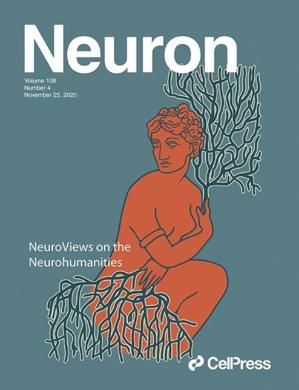In the introduction to this special edition of Neuron, Professor Mani Ramaswami, Director of Trinity’s Institute of Neurosciences (TCIN) and Tom Carew, Professor of Neural Science & Psychology at New York University (NYU), argue that “the time is right for a closer partnership between specific domains of Neuroscience and their counterparts within the Humanities, which we define broadly as all aspects of human society and culture including, language, literature, philosophy, law, politics, religion, art, history and social psychology.”
 The Journal contains a series of ‘NeuroViews’ organised by Ramaswami and Carew highlighting the potential of this emerging field, which the authors suggest offer opportunities for “new understanding” and an enhanced power for interdisciplinary inquiry.
The Journal contains a series of ‘NeuroViews’ organised by Ramaswami and Carew highlighting the potential of this emerging field, which the authors suggest offer opportunities for “new understanding” and an enhanced power for interdisciplinary inquiry.
“For the Humanities, such partnerships can provide potentially richer and deeper insights into how minds create, engage with, and respond to experience”, the authors added.
For the Humanities, such partnerships can provide potentially richer and deeper insights into how minds create, engage with, and respond to experience.
In 2016, TCIN and the Trinity Long Room Hub won a Wellcome Trust Institutional Strategic Support Fund Award which facilitated the development of transdisciplinary discourse, research and public engagement in the
Neurohumanities at Trinity College Dublin. This programme now includes and connects staff across Trinity’s campus in multiple ways.
Tom Carew, a distinguished neuroscientist and recently retired Dean of Arts and Sciences in NYU, was a Fellow at the Trinity Long Room Hub in spring 2020 where he worked with TCIN on a Neurohumanities “white paper”. “Our collaboration continued after he flew back to the US, developing over late spring and summer into the essays including several Trinity and Trinity-associated associated authors, highlighted on the cover of the Nov 25 issue of Neuron”, Professor Ramaswami explained.
Among the topics included in the latest edition of Neuron are Cultural Memory; Moral Decision Making; Language, Music and Emotion; Memory and the origins of identity; and Neuroaesthetics.
In 'Beyond the Stimulus: A Neurohumanities Approach to Language, Music, and Emotion', authors Catherine A. Hartley and David Poeppel of New York University and the Max Planck Institute Frankfurt argue that although “different cultures and intellectual traditions continue their work in isolation…the yearning to find accounts of how these fundamental aspects of human experience arise from neural processes is present and increasing.”
the endorsement of the Neurohumanities in a forum as visible and respected as Neuron constitutes a form of establishment support for the kind of intellectually adventurous scholar interested in this transdisciplinary space.
Outlining how “some experiences are quintessentially human—and are sometimes considered the defining features of being human: the faculty of language, the capability to make or enjoy music, and the experience of emotion”, the authors explain that “these ubiquitous aspects of human nature are especially tough challenges for artificial systems to capture and simulate, their computational power notwithstanding.”
Commenting on the publication of the Neuron Journal yesterday, Professor Mani Ramaswami said “the endorsement of the Neurohumanities in a forum as visible and respected as Neuron constitutes a form of establishment support for the kind of intellectually adventurous scholar interested in this transdisciplinary space. I also hope that this will empower established scholars and scientists already working in the broad area, and encourage formation of new fora to bring them together for further creative and synergistic collaborations."
Professor Eve Patten, Director of the Trinity Long Room Hub, also echoed the potential of this field of study to expand valuable interdisciplinary research across the neurosciences and humanities and commended the “tremendous work of colleagues in the arts and humanities and TCIN for bringing this field of study further into the spotlight...
Professor Eve Patten, Director of the Trinity Long Room Hub, also echoed the potential of this field of study to expand valuable interdisciplinary research across the neurosciences and humanities and commended the “tremendous work of colleagues in the arts and humanities and TCIN for bringing this field of study further into the spotlight, not least the work of my predecessor Professor Jane Ohlmeyer in driving momentum in this area, and together with Professor Ramaswami, in building links across Trinity, and across the world with institutions in Bangalore and New York.”
To further promote the growth of this field, the journal outlines the need for the ongoing support of academics, funding agencies, leading scholars and other stakeholders. Professor Ramaswami concluded that the publication of this research “is a success that we in Trinity should build upon.”
